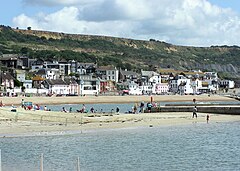
Author: Steve Hendricks
Pages: 352
Published: 2010 W.W. Norton
Read For: Review
My Rating: 2.5 stars
The CIA and Italian police, politics and government, terrorism and counter-terrorism, Egypt and Islam, torture and extraordinary renditions...the stuff movies are made of, right? They are also all things I don't hold much interest in, and yet I gave it a shot, inspired by my experience with Thunderstruck by Erik Larson--another nonfiction book I read recently (one that I wasn't interested in and ended up enjoying). They are also all things that I think are vital to be interested in, if loving this book is the ultimate goal. This book may be just the thing for the person who loves the inside scoop, who revels in well-researched details and isn't bothered by a very full cast of characters.
While one of the resources in the back of the book lists 53 different significant characters, (an impressive number,) I came away only remembering the names of 3 and don't feel worse off for it: Abu Omar (whose kidnapping the book focuses on), Milan's CIA Chief Bob Lady (because I'm tickled by the idea of calling someone Mr. Lady), and the Italian investigator Spataro (because his last name shares the same nationality and 1st 3 letters as my married name...as does spaghetti, my husband informed me.)
I can only imagine how difficult a task it must be to whittle down the vast amount of information a project of this sort must entail, to a size that will make the information accessible to the maximum number of people. I'll not attempt to opine that any of the characters in this book were unnecessary, yet I wish that it had been easier, while reading, to determine which characters it was more important to pay attention to. I also wish that the book had been anchored by a character whose personality, beliefs and experiences were better known and easier to identify with (such as Spataro or the author himself) instead of floating around an issue or an aloof character.
In many ways, it has a documentary sort of feel about it: it is non-fiction based on current events, and the author obviously put a lot of personal work and research into the book. He seeks to inform the public about an issue that, especially since 9/11, has become big enough to demand some thought and answers. What level of illegal actions is acceptable for a government organization? What level of inhumane treatment is acceptable in response to unrepentant terrorism? Also discussed is the history of unrest in Egypt, which makes for a nice base of knowledge in light of current events. While I am glad that I don't have to be the one making these decisions, I am also glad to have some background knowledge about them.
(Many thanks to the author and publisher for providing me with a copy of this book!)











 (1997) American woman searches for French ancestors and uncovers more than she’d bargained for.
(1997) American woman searches for French ancestors and uncovers more than she’d bargained for. (1999) Modest Dutch maid becomes poster girl for the painter Johannes Vermeer.
(1999) Modest Dutch maid becomes poster girl for the painter Johannes Vermeer. (2001) Two families love and feud among the gravestones of London’s Highgate Cemetery.
(2001) Two families love and feud among the gravestones of London’s Highgate Cemetery. (2003) Love is blind among the weavers of a lavish set of medieval tapestries.
(2003) Love is blind among the weavers of a lavish set of medieval tapestries. (2007) Two pre-teens bond with radical painter-poet William Blake in 18th-century London.
(2007) Two pre-teens bond with radical painter-poet William Blake in 18th-century London. (2009) Two eccentric women search for fossils on English beaches.
(2009) Two eccentric women search for fossils on English beaches.











